Australian poetry: Emery, Cahill, McInerney, Leigh Keates
Four new books of poetry document the struggles we face to define ourselves as individuals and members of a community.
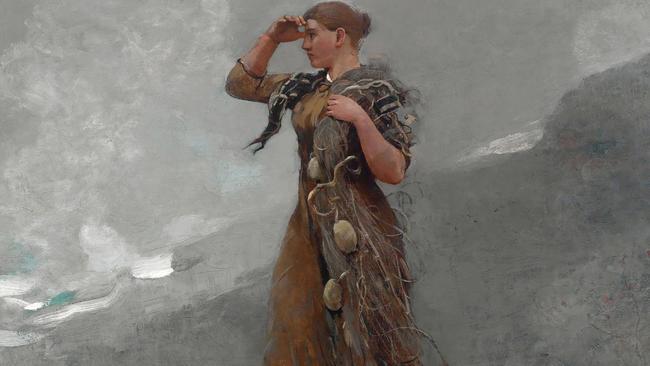
In the new anthology Contemporary Australian Poetry, published by Puncher & Wattmann, the editors make strong arguments for the cultural importance of poetry today. They celebrate how, for example, our poets continue to help us understand the natural environment not as a background for literature but as a complex presence in our lives.
They also note the vital and varied ways in which poetry explores language, which constitutes so much of our sense of self, and yet at times appears intangible and strange. Now four new books by Australian poets document in diverse fashion the struggles we face to define ourselves as individuals and members of a community. They testify to how, in grappling with such questions, an art form too often overlooked continues to show us the way.
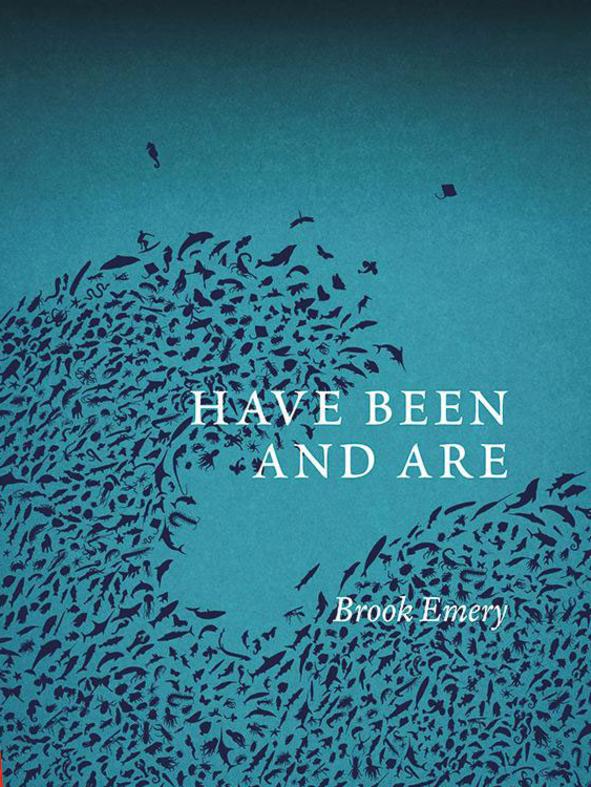
The title of Brook Emery’s fifth book of poetry, Have Been and Are (Gloria SMH Press, 70pp, $29.99), is taken from the last sentence of Charles Darwin’s The Origin of Species, ‘‘endless forms most beautiful and wonderful have been and are being evolved’’. This is a fitting key to poems that are musings on the sheer variety of life. Emery has taken the adjectives with which Darwin concludes his book, beautiful and wonderful — which are themselves so unscientific — as a starting point for the poet’s eternal urge to celebrate the world in song.
‘‘Have been and are’’ suggests not only the variegated nature of life, but also flux. It is not surprising, then, that the ocean, with its tides and currents, is once again central for a poet who confesses, ‘‘I’m always writing about the sea, about change / about power, how small we are, I am; about / being tossed around, lost maybe’’. If the river into which we cannot step twice was a symbol of change for Heraclitus, in Emery it is a vaster body of water and, rather than stepping, the poet is surfing across the surfeits of nature, or getting his breath knocked out of him by the tidal waves of climate change.
Just as the book takes its title from Darwin, so too the title of each poem is a phrase sampled from authors ranging from Baudelaire and Leonard Cohen to Heidegger and Inga Clendinnen. While this suggests the same diversity in the world of letters as in the natural world, it would be wrong to adopt Darwin’s model of evolution, or the Enlightenment’s idea of progress, to literature. Think rather of that process WH Auden called breaking bread with the past. On Parnassus there is no progress.
In some writers, epigraphs capping poems can seem like an anxious desire to rivet oneself to the tradition. In Emery the poet’s own voice is resolute and clear. The poems are transcriptions of an inner monologue as it reflects on the world. It is a quiet and philosophical voice, moving cautiously, distrustful of pronouncements. ‘‘This is thinking sideways,’’ one poem announces, ‘‘or lying in wait so when a thought comes at you / out of left field, so to speak, all you have to do / is pounce.’’
The poems are open-ended, not trying to study thought under a microscope but aiming to ‘‘catch my own drift’’. Of course drift must be free to transform, like a current of water, sometimes dangerously and mysteriously like an undertow. ‘‘We hanker after knowing / and are given change,’’ he writes. But in the end, praise for the physical world prevails: ‘‘Let’s not lament, / lest my words belittle the dappled light”.
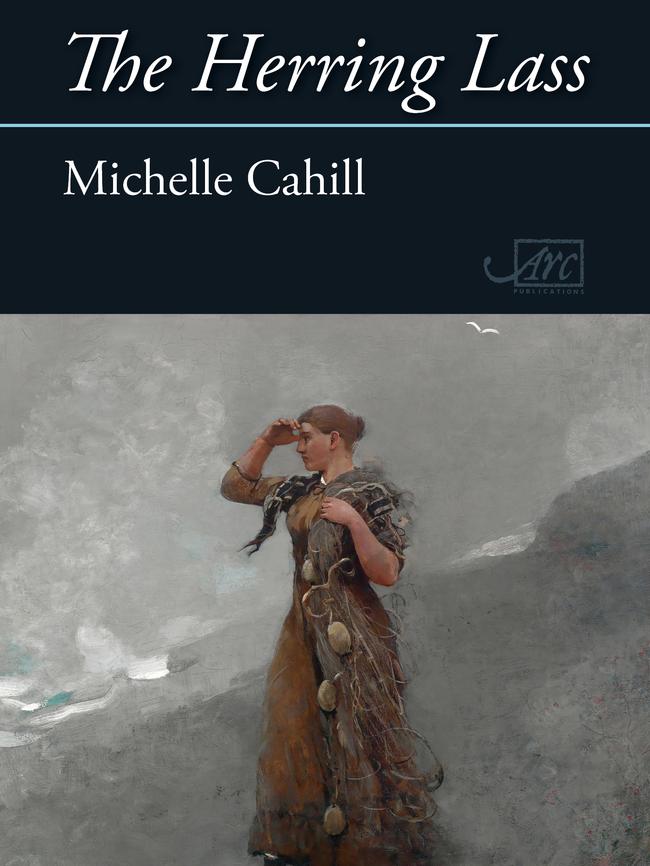
The sea is also a recurrent theme in Michelle Cahill’s second book of poetry, The Herring Lass (Arc Publications, 77pp, $20). It contains poems depicting those who earn a living by the ocean, such as the title character, and others that adopt the voice of the sea’s inhabitants, such as a seal: ‘‘I sniff the kelp and bloodworms, / mould into an eroded kerb / with a twist of neck, whisking as if / hiding my fur is natural / instinct for milk or man’’.
The sea can also be a boundary for nations, or the point from which colonial countries set out on voyages of conquest, and Cahill is well attuned to the way ‘‘there was no caesura, no straight lines / at the edge of Empire. The wall was porous.’’ Porous, too, is the language of these pieces, which are awash in the pluralism of English words, contemporary discourses, registers and contexts dizzyingly spliced together, such as ‘‘pelagic fish skirr’’, and ‘‘The elegiac red gums restore calm and unwitting / sense to marginalia, trashing the mind’s megabytes’’.
Seas connect continents and these poems range from Scotland to Australia, Asia to the Arctic Circle. The author’s note tells us that Cahill was born in Kenya, lived in Briatin and now resides in Sydney. But is there also something typically Australian about this roaming perspective? Many of our poets are doggedly international in scope, as if there were some underlying scepticism about the groundedness of “home’’ that keeps us on the move.
The editors of the aforementioned anthology describe Australia as a natural postmodern country, as a result of its cultural and geographic circumstances. Cahill, I imagine, would agree: ‘‘Every voyage is a double voice, blurring / body and codex, buoyed by stars, cloud / vacillations, erasures of trade winds, every / harbour, a sentence. Myself, a foreigner’’.
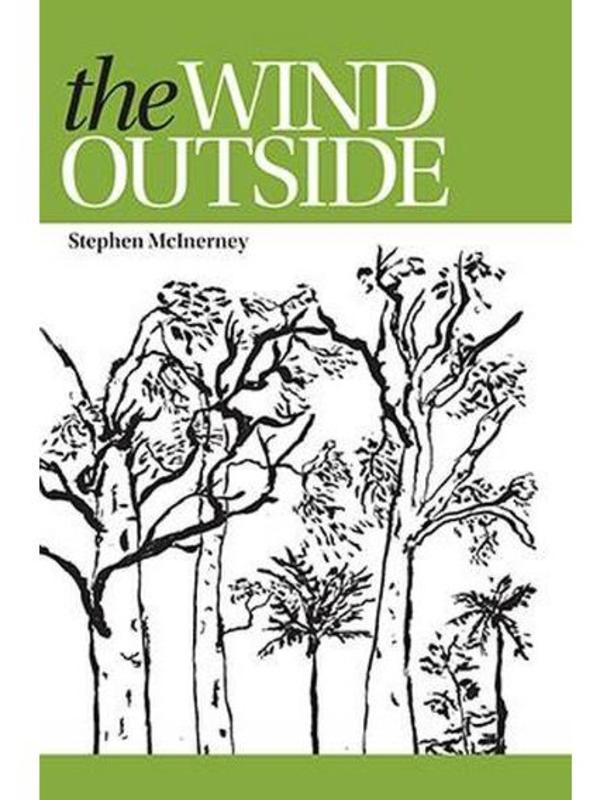
After a long gap, Stephen McInerney has published his second book of poetry, The Wind Outside (Hardie Grant Publishing, 104pp, $24.99). These pieces also range to Britain, France and Greece, but their dual focus and strength is Sydney and the NSW south coast, where the author grew up.
Rather than flux, the best of them aim to capture and celebrate everyday details of life, with a keen eye and metrical flair, ‘‘You left me on the day the milk expired / I left it in the fridge for days forgetting / I pour it in my tea and watch it curdle / it is an awful thing to be desired.’’ They are courageous in trying to be grounded, to speak lucidly and faithfully in an age that has abandoned the signature ‘‘yours sincerely’’.
McInerney is often enticed by things just out of reach or glimpsed momentarily, like breasts in a loose top, ‘‘the sway, / the dandle of ladles / at play’’; or like the wind, which sweeps through so many of these poems: ‘‘I had not thought before of the wind’s longing, / how it always seems in search of something lost, / like a cloud set down on a green hill at evening / or a letter rustling in a young woman’s hand’’. Elsewhere he writes, ‘‘the wind is the spirit hovering / over the waters, / absorbed in / its own reflection’’.
The second half of the book is focused on evoking the past. A rural childhood and the trials of boarding school recall Philip Hodgins, as here in My First Cricket Bat: ‘‘I remember my first cricket bat: / linseed oil rubbed down the blade / with an old singlet; / the crack of the mallet / along face and edges; / a dream of Benson and Hedges’’. He also shows a knack for aphorism, as in one of my favourites, A Summary: ‘‘Coffee makes the sun rise, / whiskey makes it set, / and in between, desire, / and in between, regret.’’
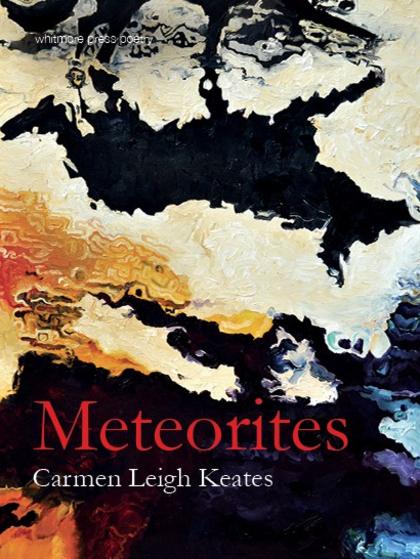
Meteorites (Whitmore Press, 48pp, $19.95) is the first collection from Carmen Leigh Keates, who won the Whitmore Press Manuscript Prize, which led to this publication. From the opening of the first poem we are again roaming, either in search of something or to escape from something hard at home, ‘‘The lightning is concerned with a secret / affair far off in the unlit Baltic. / Only the rain comes home’’.
A biographical note describes how Carmen Leigh Keates goes either very far north (Scandinavia) or very far south (Tasmania) when researching new work, but there are other types of travel here, too. Most prominently there are voyages via the cinema of Andrei Tarkovsky and Ingmar Bergman to the worlds of dream and screen. Often the experiences of the geographical traveller and the cinematic one merge to create a dreamscape that is mysterious and suggestive, for as Leigh Keates says, ‘‘There are many rooms, frames. We make them / move by passing through and remembering our own sequences’’.
These are poems that take ekphrasis (poetry that responds to a visual artwork) to the realm of cinema, combining elements of narrative and character with the eerie atmosphere of Tarkovsky’s films, such as Andrei Rublev. As Andrei carries out ‘‘this faith painting’’, the poem describes how ‘‘he feels impelled to the crossroads / of yellow flowers buzzing / so full of bees that if this scene were shaken / upside down it would not be pollen / that trickles out but legs and wings’’.
Such surreal journeys are anchored by other poems that are trips into family recollection. Here a more earthed and nostalgic note dominates, as for example in the long poem Burning Train: ‘‘Mum and Dad would sip / from glasses of port / that looked like the blood / sap from those trees / down near the lines beyond / the field, where with sticks / we’d draw pictures in the river sand / while the match played out’’. Drawing pictures in the river sand, and recomposing the sequence of frames we view and pass through are both good images for the intelligent and suggestive poems of Meteorites.
Simon West is a poet and critic.


